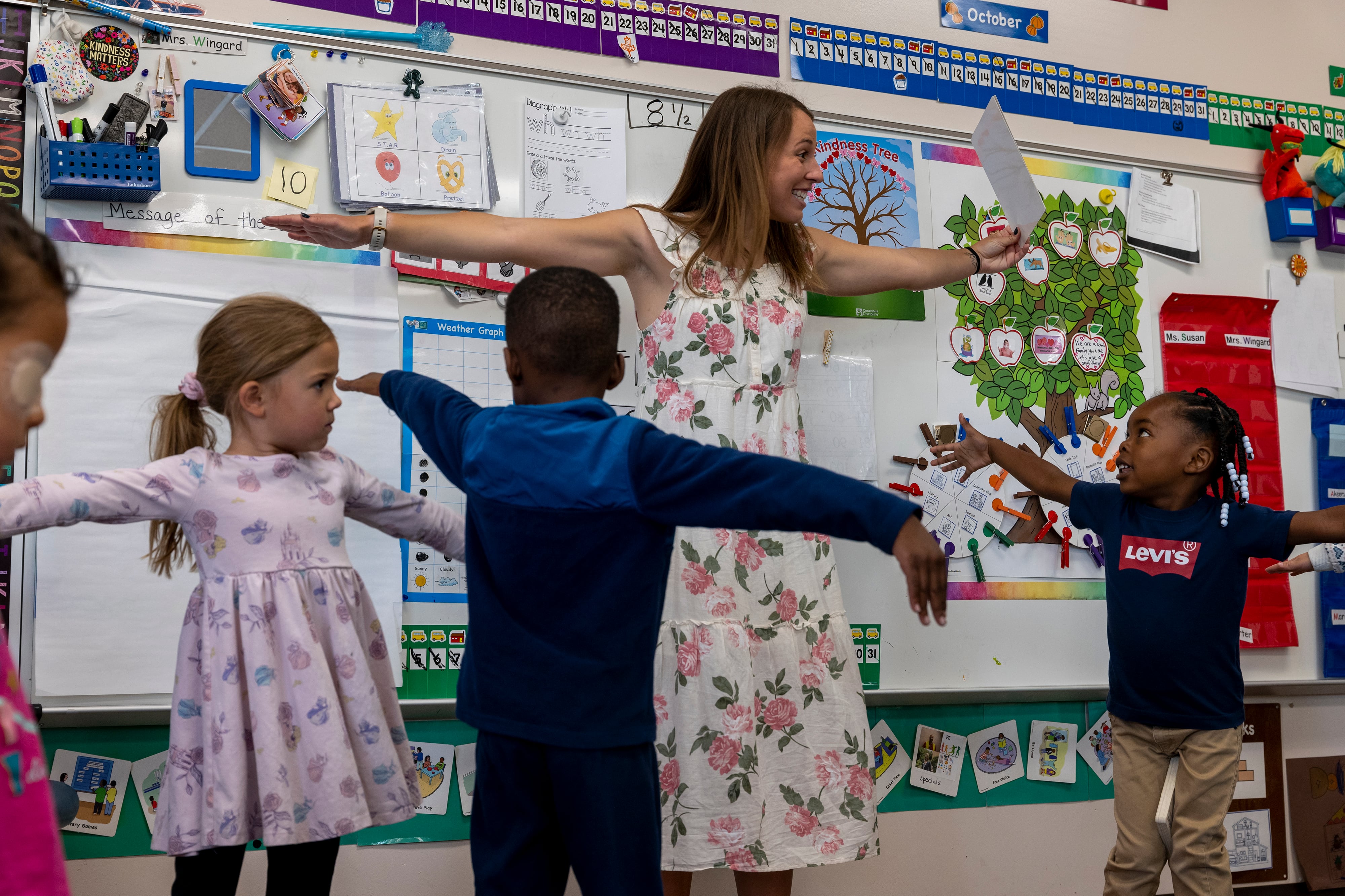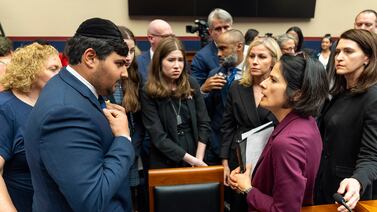Sign up for Chalkbeat’s free monthly Starting Line newsletter to get the latest news on early childhood issues.
Colorado relies on 32 local organizations to help parents and providers navigate its popular new universal preschool program. Now some of them worry that proposed state funding cuts could “cripple” their operations.
More than a dozen of these groups, including those based in Denver, Boulder, Colorado Springs and Grand Junction, sent a letter this week to Gov. Jared Polis, the state’s powerful Joint Budget Committee, and other officials expressing concern about potential cuts in each of the next two years.
In the Wednesday letter, the groups said a proposed cut of $1.7 million for next year and an additional cut of $700,000 the following year “will deplete up to 68% of funding for some of us who serve the largest child populations in the state.”
The group’s comments echo concerns raised since universal preschool’s inception about whether there’s enough money to run the program as state leaders envisioned. Some preschool providers and early childhood advocates have worried the state is compromising on its pledge to provide high quality preschool and extra class time for children with the greatest needs as it tries to serve the flood of interested families.
Not all of the local groups involved in the preschool program are concerned about the possible cuts. And if the cuts do occur, the groups would likely be able to recoup some funding through accounting maneuvers at the Colorado Department of Early Childhood. But that backup plan is a promise of future aid, not guaranteed funding.
The $322 million universal preschool program launched in August, and despite a rocky rollout, attracted more families than state leaders expected. This year, 62% of Colorado’s 4-year-olds get 10 to 30 hours a week of tuition-free preschool through the program. Enrollment is expected to hit 65% next year.
The program is funded partly with a voter-approved nicotine tax, and partly with funding from Colorado’s previous smaller state-funded preschool program.
This year, the 32 local groups — which typically have one to four staff members dedicated to universal preschool — received about $5.2 million for their work, which includes helping preschools sign up for the universal program and helping families troubleshoot application and placement problems. That amount is slated to go down to $3.5 million for the 2024-25 school year and, because of expiring federal COVID relief funding, to $2.8 million the year after.
In response, the groups are asking state early childhood leaders to revise the budgeting process that funds them and provide another year of full funding, which would be a total of $5.2 million.
Ian McKenzie, a spokesperson for the Colorado Department of Early Childhood, said department officials are meeting this week and want to respond to the local groups that sent the letter as soon as possible.
“We’re taking it very seriously and want to collaborate with the [local groups] on this,” McKenzie said.
He said the state will be able to partially mitigate next year’s cut through a budget mechanism called a “footnote” that will allow the department to move $1 million to the local groups from another line item if needed.
Mackenzie also said that, collectively, the local groups significantly underspent their state funding allocation last school year, and are on track to do so this year, albeit to a lesser extent.
But leaders of some of the groups, officially called Local Coordinating Organizations or LCOs, say the state’s underspending argument obscures key facts, including that many of the larger groups spent most or all of their state allocations last year and are on track to do the same this year.
They also note that the early childhood department and the 32 local groups were brand new in the 2022-23 school year, and so underspending that year was sometimes because of state administrative lags or the challenge of ramping up a new program.
McKenzie said 28 of 32 local groups underspent their allocations in 2022-23, but said he couldn’t provide numbers showing how many are on track to do so this year.
Christina Taylor, CEO of the Early Childhood Council of Larimer County, one of the 13 local groups that signed the letter, said the budget footnote that would restore some of the lost funding next year will help, but not enough.
Taylor said her group’s state allocation in part funds two employees who are “working their butts off” to help parents and preschool providers figure out how universal preschool works.
If their hours are eventually reduced due to funding cuts, she worries that families would face longer wait times and missed deadlines, and that providers might “throw up their hands” and opt out of the program because they can’t get the necessary support.
Kathleen Merritt, executive director Bright Futures, a local group in western Colorado that didn’t sign the letter, said she is grateful for the early childhood department’s “footnote” money next year, but said, “I do worry that’s not sustainable.”
She said the universal preschool manager she pays with her state allotment works with preschools in a five-county area the size of New Jersey. “They all have her on speed dial,” said Merritt.
Merritt said she’s pleased that state officials recently agreed to start monthly meetings with local groups to look more closely at their costs.
Diane Smith, executive director of the Douglas County Early Childhood Council, another group that signed the letter, said with federal COVID relief now expiring after years in which state coffers were flush with cash, many in the early childhood field feel generally anxious about funding.
When the announcement about cuts to the 32 local groups came down from the state in recent weeks, she said, the feeling was, “Oh here’s another one.”
Ann Schimke is a senior reporter at Chalkbeat, covering early childhood issues and early literacy. Contact Ann at aschimke@chalkbeat.org.









